- Stress
- Fatigue
- Anxiety
- Sleep disorder
- Anger
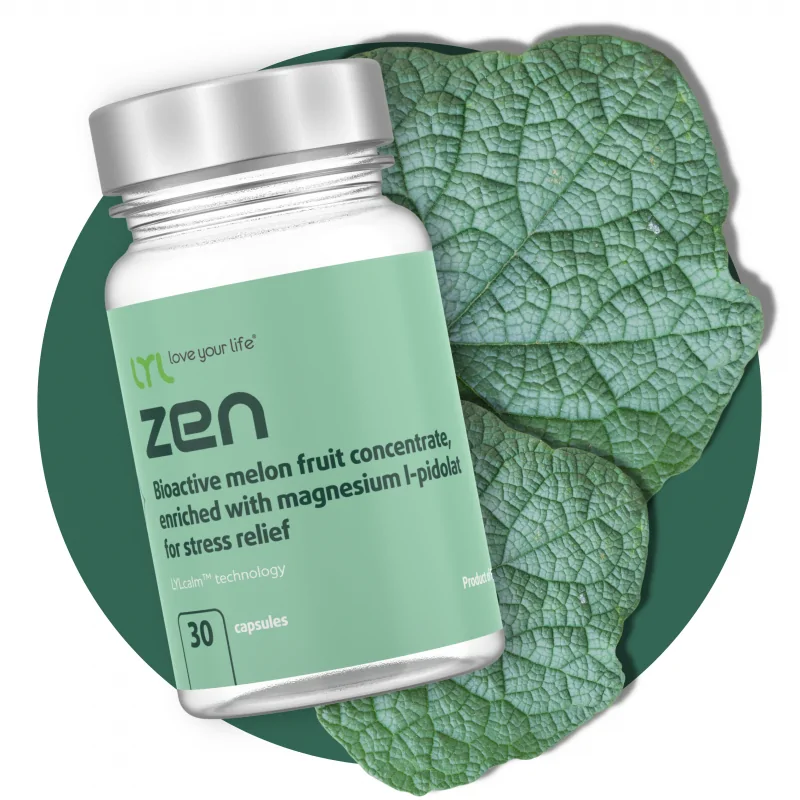
-63% lower stress symptoms
- improves body & mind’s stress response
- enhances ability to stay calm & focused
- regulates sleep disorders
-63% lower stress symptoms
- improves body & mind’s stress response
- enhances ability to stay calm & focused
- regulates sleep disorders

Award winning
the active ingredient in the product – Extramel®, has been shown in two award-winning, published clinical trials
Magnesium pidolate
the effectiveness of the product is complemented by highly bioeffective magnesium
Super Antioxidant
LYL ZEN contains superoxide dismutase (SOD). This superoxide has been clinically studied to be the most active antioxidant on the market
Patented
the active ingredient in LYL ZEN – Extramel®, is a unique melon extract derived from the patented Cantaloupe melon

Award winning
the active ingredient in the product – Extramel®, has been shown in two award-winning, published clinical trials
Magnesium pidolate
the effectiveness of the product is complemented by highly bioeffective magnesium
Super Antioxidant
LYL ZEN contains superoxide dismutase (SOD). This superoxide has been clinically studied to be the most active on the market
Patented
the active ingredient in LYL ZEN – Extramel®, is a unique melon extract derived from the patented Cantaloupe melon

Superoxide Dismutase or SOD is an essential antioxidant metallo-enzyme, naturally present in our body.
The only enzyme capable of catalyzing the conversion of superoxide anion (O2 · -), the most reactive and abundant of free radicals, it has extraordinary antioxidant power and is our first line of defense against oxidative stress.
Among the many benefits associated with it, SOD contributes in particular to the management of daily stress, thanks to an action directly on the physiological response of the body.
Our Extramel® ingredient is a unique melon juice concentrate, obtained from a proprietary variety of Cantaloupe melon. Naturally rich in Superoxide Dismutase, Extramel® also contains a cocktail of all the bioactive molecules of melon: vitamins, minerals, proteins, fibers and sugars.
Our ingredient has already demonstrated its efficacy in 2 clinical studies. With only 10 mg / day for 1 month, Extramel® considerably reduces the feeling of stress.
A concentrate of freshness and vitality, Extramel® promotes general well-being by reducing stress level and maintaining optimal mental and physical performance. It’s clinically proven!
Bioactive, Extramel® acts by strengthening the body’s natural defenses, thus avoiding oxidative stress, a key factor in the development of emotional stress.
Thanks to this mode of action, Extramel® allows a global action, for a unique and lasting efficacy.
Reactive oxygen species (ROS) are produced by living organisms as a result of normal cellular metabolism and environmental factors (UV rays, air pollutants or cigarette smoke, for example).
Although highly reactive molecules, a tightly regulated production of ROS is beneficial for normal physiological functions. They are indeed involved in signalling reactions and the immune response.
Excessive ROS, however, may have detrimental effects. Caused by ROS overproduction and/or a decrease in antioxidant defences, the imbalance between ROS production and detoxification is termed “oxidative stress”.
Largely encouraged by our modern lifestyle habits, this oxidative stress results in protein, lipid and DNA damage, disruptions of the normal signal transduction pathway and has been implicated in numerous human disorders.
Every day, people stay home from work, miss school, go to the doctor or even die because of the effects of stress. It’s estimated that American employers spend $300 billion every year on health care and lost work days linked to stress. Up to 80 percent of workplace accidents come from stress or stress-related problems, like being too distracted or tired.
Stress is a costly issue in other areas of the world, too. People in the United Kingdom (UK) miss 13.7 million days of work due to stress each year. The problem costs $14.2 billion in Australia and about $37 billion in the UK in lost productivity each year.
JOIN OUR COMMUNITY
@actressagnesezeltina
Labvakar!❄️
Vai jūs jau esat sagādājuši Ziemassvētku dāvanas savām mīļākajām ģimenes sievietēm?
Te ideja un lielisks promokods no manis, kas dos jums @lyl_love_your_life_brand produktu sērijai ar astaksantīnu 25% atlaidi līdz pat 31.12.!
Tas ir ZELTINA un būs aktīvs līdz pat gada beigām.
Ar šiem lieliskajiem kremiem acīm, sejai un rokām es iepazinos jau krietni sen un man tos ļoti patīk lietot gan aromāta, gan maigās tekstūras dēļ.
🧴Krēmi, veidoti pēc īpašas tehnoloģijas un ir unikāli ar sastāvā esošo, dabā spēcīgāko antioksidantu formulu. Veicina dinamisku ādas šūnu aizsardzību un atjaunošanos un pilda trīskāršu pretnovecošanās funkciju: atjauno – aizsargā – ārstē.
🧴Antioksidanti astaksantīns, likopēns, jeb tomātu sēklu eļļa nodrošina spēcīgāko ādas aizsardzību pret oksidatīvo stresu, ārstējot ādas mikroiekaisumus, atjaunojot ādu šūnu līmenī, tonizējot nogurušu ādu, kā arī izlīdzinot esošās grumbiņas un aizkavējot jaunu rašanos.
🧴Vērtīgākais no mitrinātājiem – divu viedu hilaurīnskābes sekmē reģenerēšanās jeb atjaunošanās funkcijas, rūpējas par tūlītēju krēma absorbciju un dziļu mitrināšanu visos ādas slāņos.
🧴Dzērveņu sēklu eļļa nostiprina epidermas slāni, kā arī nodrošina izcilu ādas mitrināšanu un barošanu.
🧴Produktu pozitīvā iedarbība ir pierādīta dermatoloģiskā testā
❤️97% liftinga efekts
❤️par 82% dziļāka mitrināšana
❤️par 64% mazinās smalkās grumbiņas
*Dermatoloģiskā testēšanā piedalījās sievietes un vīrieši vecumā no 25 līdz 60 gadiem; četras nedēļas/ spektrofotometriskā analīze.
Pamēģināsi? Arī astaksantīna kapsulām ar kodu ZELTINA būs 25% atlaide un tā darbosies vēl 2 nedēļas!
Ikdienas un intensīvai lietošanai no rīta un vakarā, visiem ādas tipiem jebkurā vecumā, bet jo īpaši pēc 25 gadu vecuma, kad sākas ādas novecošanās.
🧴Sejas krēma īpašais bezgaisa sistēmas flakons nodrošina sastāva spēcīgās aktivitātes ilgdzīvi, neļaujot flakonā iekļūt gaisam un mikrobiem.
#lylastaxanthin #lylloveyourlife #creamastaxantine #astaksantīns #sadarbība #lylweb
...
@laura_valuta & LYL love your life® LYL premiumC 🍋
JAUNUMS! no LYL love your life®🍋
@lyl_love_your_life_brand premium C - augstas absorbācijas, ilgstošas iedarbības, bezskābes C vitamīns
🥦Nebūs pārspīlēts, ja apgalvošu, ka C vitamīns ir vispazīstamākais vitamīns! Un ikdienā biežāk lietotais.
Tā kā pati C vitamīnu lietoju, tad padalīšos ar Jums par jaunumu no
🥦Lai ar uzturu uzņemtu nepieciešamo C vitamīna devu, būs jāapēd ieteicamās piecas līdz septiņas saujas jeb porcijas dārzeņu un augļu dienā. 🥙🥙🥙🥙🥙
C vitamīns organismā neveidojas un neuzkrājas. Šī iemesla dēļ tas ir regulāri un konstanti jāuzņem. Kopā ar pilnvērtīgu uzturu var izvēlēties lietot arī papildus C vitamīnu. Dienas deva ir jāpalielina, ja organismam ir paaugstināta slodze, stress, saslimšana utml.
🍊LYLsmart™️ tehnoloģija ļauj organismam uzņemt C vitamīnu pakāpeniski (8 stundu garumā), nodrošinot optimālu tā līmeni asinīs visas dienas garumā.
Pateicoties LYL premium C ilgstošai izšķīšanai, tiek novērsts kuņģa kairinājums un mazināta potenciālā alerģiskas reakcijas iespējamība.
Uztur augstu C vitamīna koncentrāciju asinīs.
🍊Bioflavonoīdiem, ar kuriem bagātināts LYL premium C:
🍋 ir spēja aizsargāt C vitamīna molekulu no oksidēšanās, tā uzlabojot un paildzinot C vitamīna iedarbību,
🍋 piemīt pretvīrusu, antioksidējošas un pretiekaisuma īpašības,
🍋 ir spēja palielināt asinsvadu sieniņu izturību un elastību, un tandēmā ar C vitamīnu veicināt kolagēna veidošanos ādā.
LYL premium C pasargā šūnas no oksidatīvā stresa, līdz ar to āda saglabājas jaunāka, palīdz atjaunoties ādas šūnām, piedalās kolagēna sintēzē, kā arī palīdz apturēt un novērst dažādus iekaisuma procesus organismā, jo ir dabisks antioksidants.
🍋🍋🍋 P.s. Oktobrī visās aptiekās un interneta aptiekās ir -20% atlaide. 🍋🍋🍋
Uztura bagātinātāji neaizstāj pilnvērtīgu un sabalansētu uzturu.
#reklāma #lylloveyourlife #lylweb
...
@dianakubasova & LYL love your life® LYL BIOTIC 🥦
Mmmm… Mans absolūtais komforta ēdiens ir Beyond burgeris ar bezglutēna maizi un saldā kartupeļa frī… 🍔🍟
Kādi ir Tavi mīļākie komforta ēdieni❓
⠀
Mainoties sezonām, izklaidējoties mājsēdē vai tieši otrādi - ceļojot, mēs bieži vien atļaujamies vairāk un varbūt varbūt ne tik veselīgus ēdienus. Tas var novest pie vēdergraizēm, vēdera pūšanās, gastrīta saasinājumiem. 😬
⠀
Kā arī, vai zināji, ka sejas ādas veselība ir tieši saistīta ar kuņģa zarnu trakta veselību?Tāpēc es lietoju probiotiķus regulāri, kursu veidā vairākas reizes gadā. ✨
⠀
Un protams, ka es sev izvēlos vislabāko 🔝 Probiotiķis LYLBIOTIC ir Latvijā efektīvākais, jo LYLBIOTIC vienā kapsulā ir 28 miljardi baktēriju un 9 dažādas baktēriju sugas, kas, kā apstiprināts pētījumos, veicina labvēlīgo baktēriju veidošanos zarnās, uzlabo gremošanu, palīdz nodrošināt normālu vielmaiņu, novērš aizcietējumu rašanos vai tieši pretēji, ir iedarbīgs pie visa veida caurejām.
⠀
Kāpēc vēl izvēlos tieši LYLBIOTIC?
⠀
✅ Ērts lietošanā, jo jālieto tikai 1 kapsula
✅ Varu paņemt ceļojumā, jo nav jāuzglabā ledusskapī
✅ Unikālais kapsulas apvalks pasargā baktērijas no kuņģa skābes iedarbības. Respektīvi, sāk darboties tikai tur, kur nepieciešams.
✅ LYLBIOTIC bagātināts ar prebiotiku inulīnu - ūdenī šķīstošu šķiedrvielu, kas ir probiotiku barības viela un veicina labo baktēriju augšanu un aktivitāti, kad tās nonākušas zarnās.
⠀
Parūpējies par savu veselību arī Tu - šobrīd LYLBIOTIC pieejams aptiekās ar -20% atlaidi.
⠀
@lyl_love_your_life_brand
⠀
UZTURA BAGĀTINĀTĀJS NEAIZSTĀJ PILNVĒRTĪGU UN SABALANSĒTU UZTURU.
#reklāma
#lylweb
...
@samantatina & LYL love your life® LYL premiumC 🍋
🇱🇻Lokdauns. Nomācošs laiks gan mentāli, gan fiziski. Tieši šādās situācijās sev ir jāpievērš vēl lielāka uzmanība iespēju robežās! Mūsu ķermenis nesaprot šīs ārējās pasaules noteikumus un uzstādījumus tāpēc par savu mentālo un fizisko veselību ir jārūpējas dubultā! Es C vitamīnu esmu lietojusi, kopš sevi atceros un nekas mani nepārliecinās to pārtraukt darīt! Tas rūpējas par manu veselību un arī apziņa ir mierīga, ka par to rūpējos, šajā tik ļoti neprognozējamā laikā! 🙏
@lyl_love_your_life_brand
📸@artursmartinovs
💄@janakozlovamakeup
👗@selinakeer thanks @maija_armaneva
🇬🇧Lockdown. Depressing time both mentally and physically. It is in such situations that you need to pay even more attention to the limits of possibilities! Our body does not understand the rules and settings of this outside world therefore for its mental and physical health and must take double care! I have been using C since I remember myself and nothing will convince me to do so! It takes care of my health and also the consciousness is calm that I take care of it, in such a very unpredictable time!🙏
@lyl_love_your_life_brand
#lylloveyourlife #cvitamin #cpremium #ad #helth #takecareofyourself #behealthy #welthcare #happymind #happymindhappylife #lylweb
...
DISCLAIMER: THESE STATEMENTS HAVE NOT BEEN EVALUATED BY THE FOOD AND DRUG ADMINISTRATION. THIS PRODUCT IS NOT INTENDED TO DIAGNOSE, TREAT, CURE OR PREVENT ANY DISEASE.


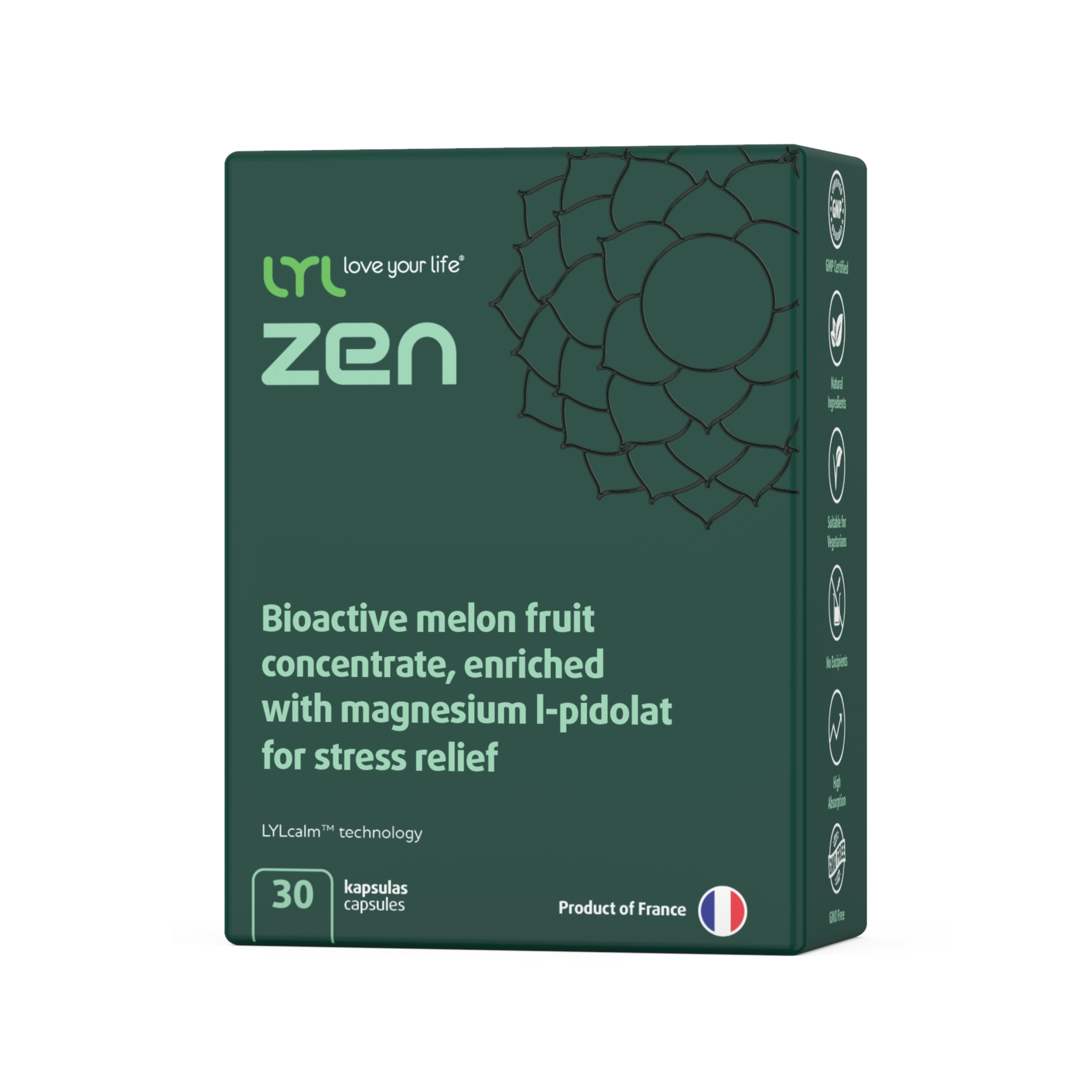






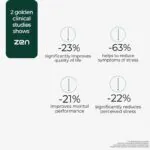




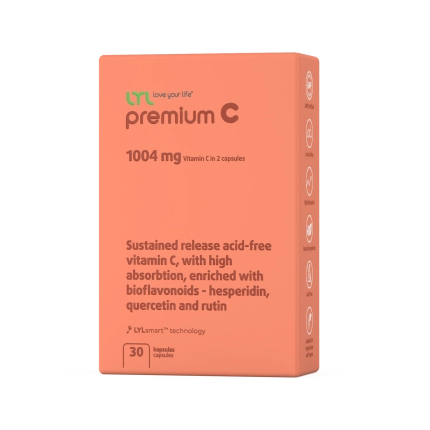







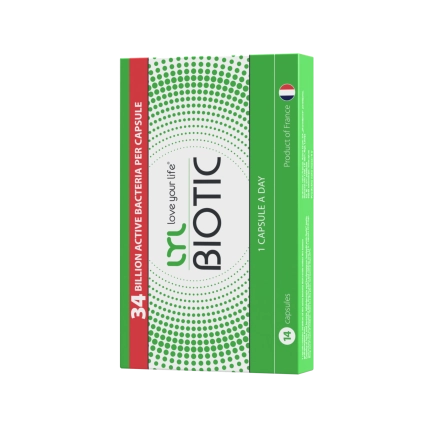
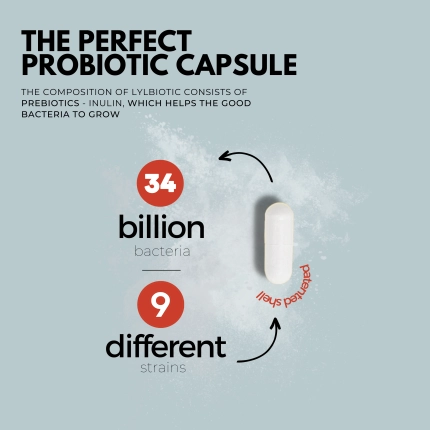

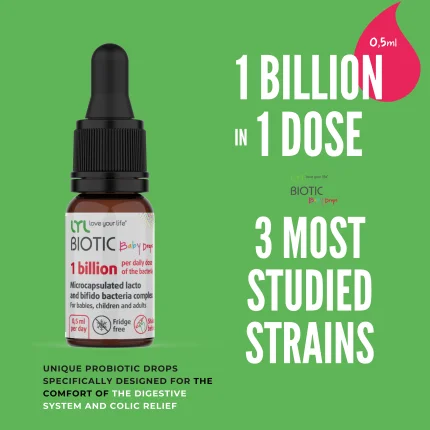


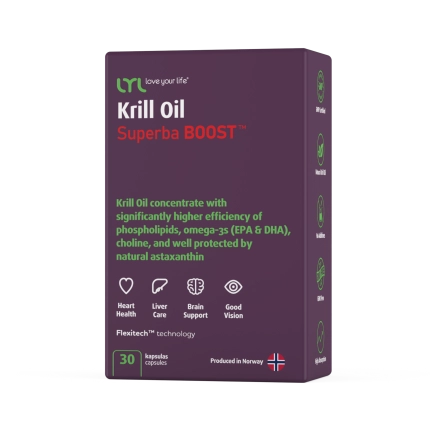



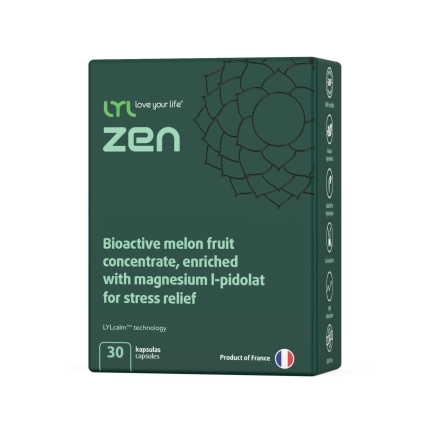
Reviews
There are no reviews yet.